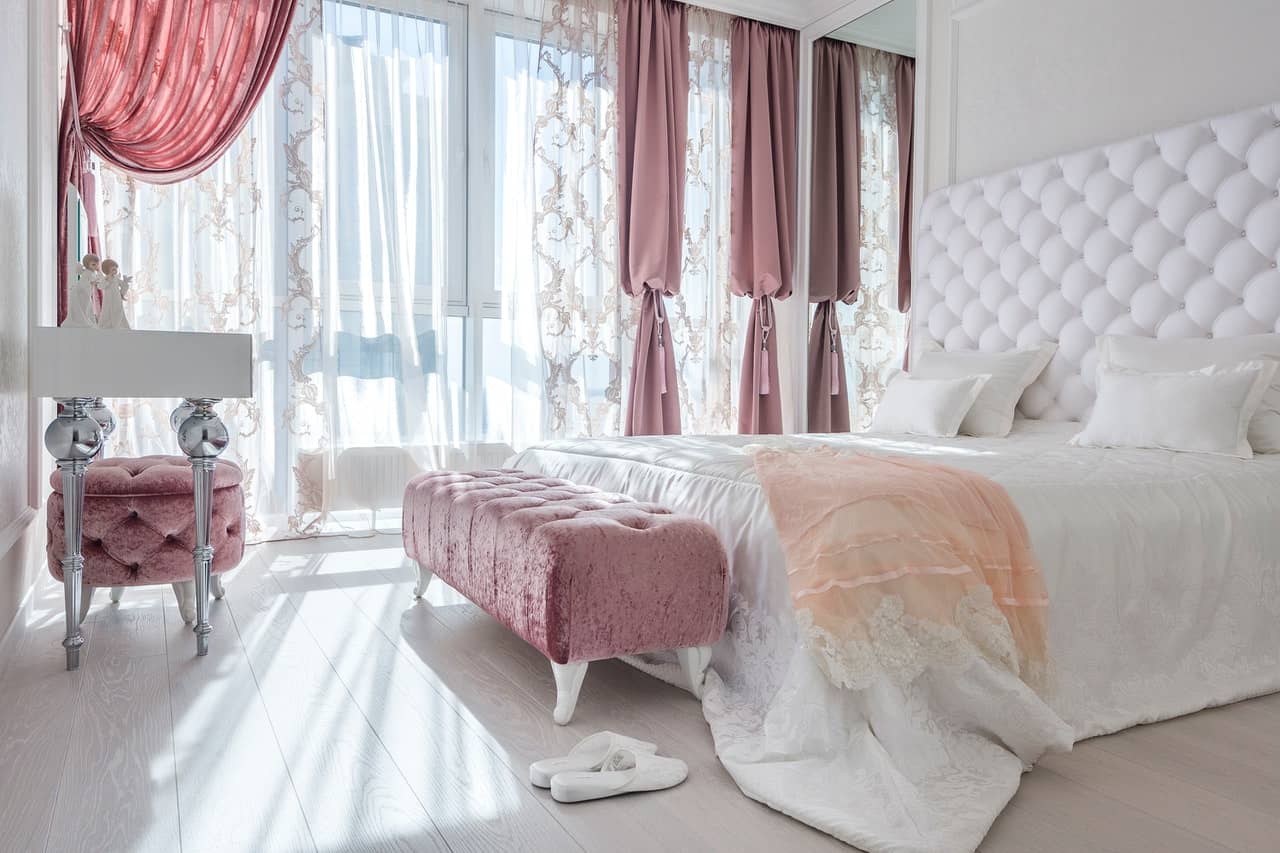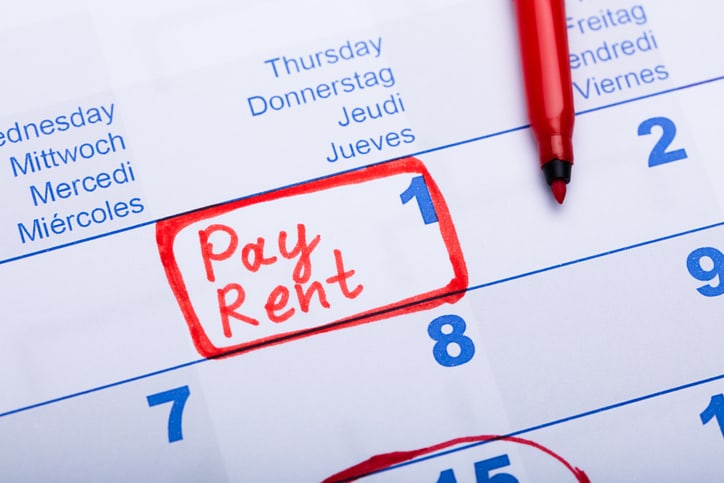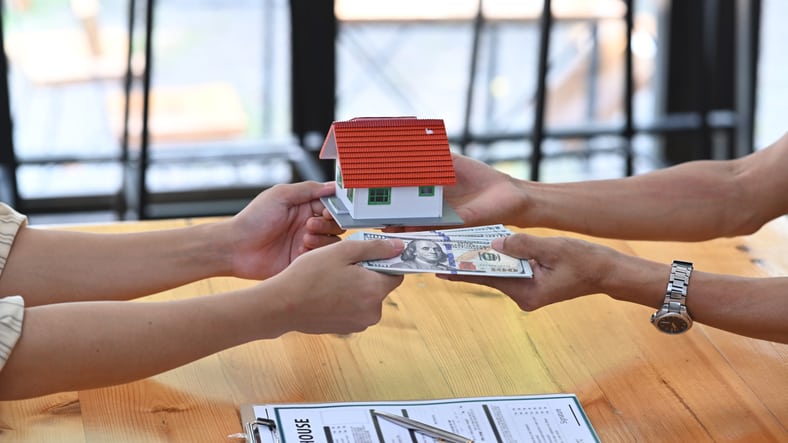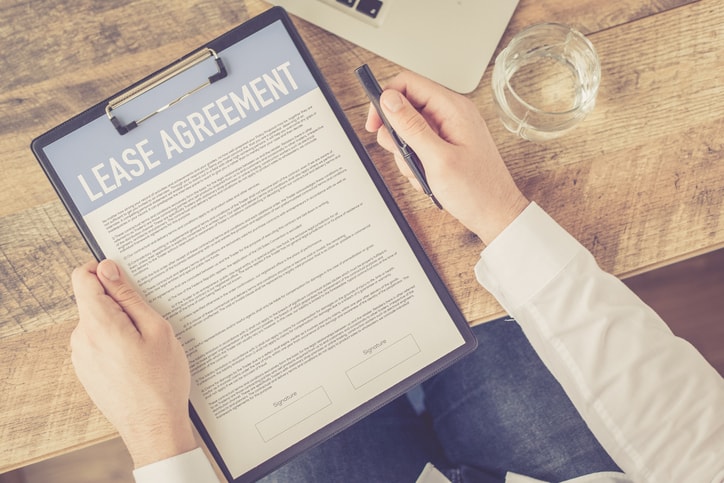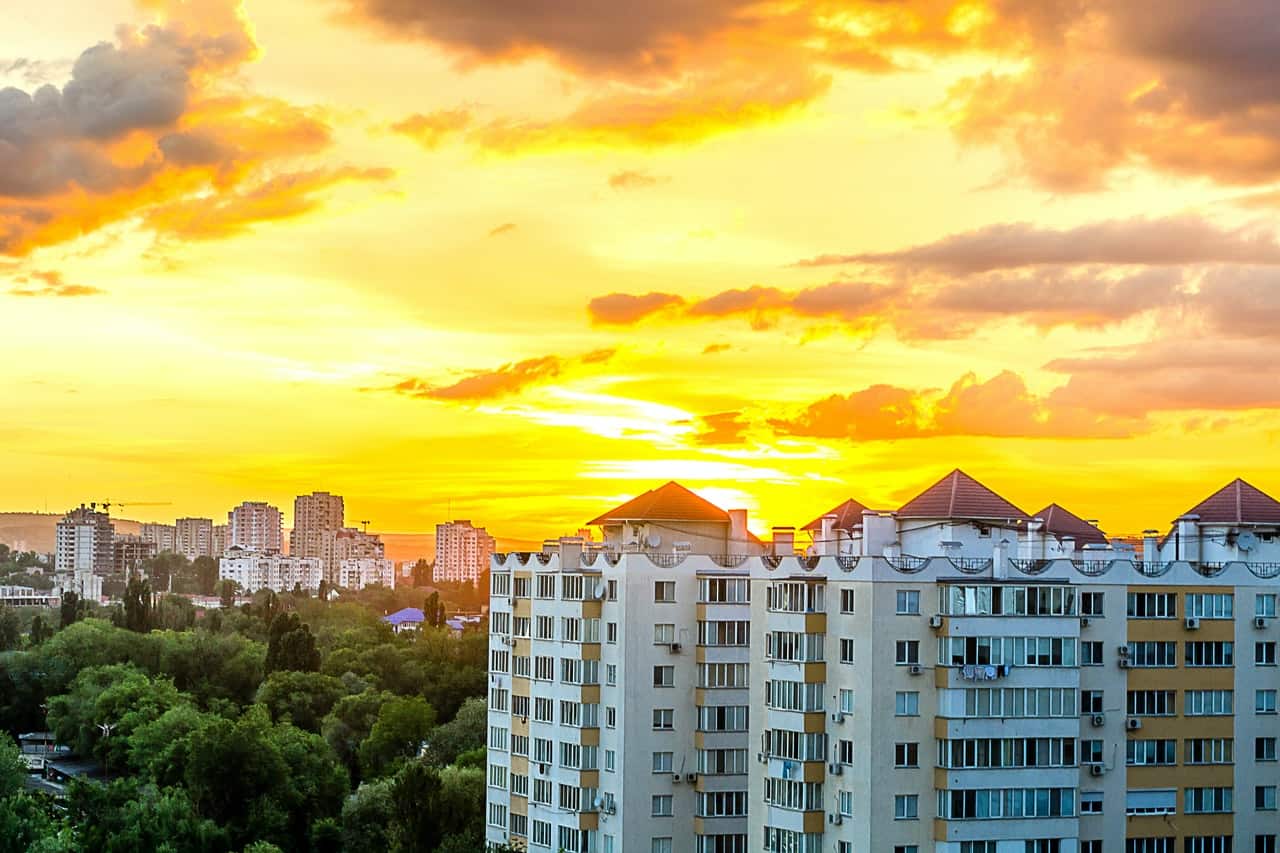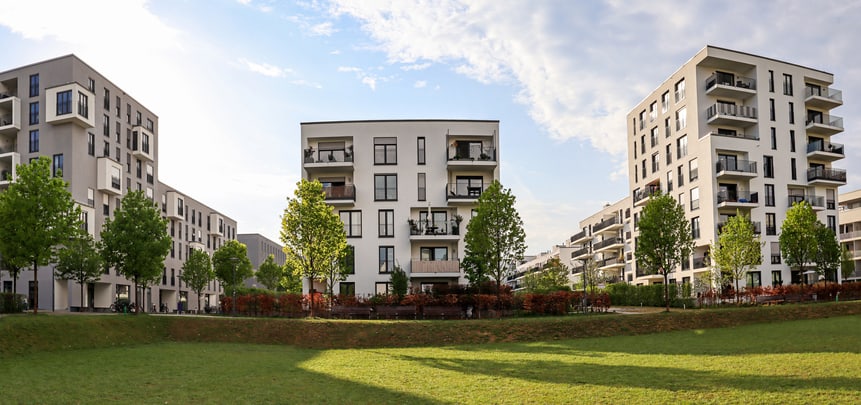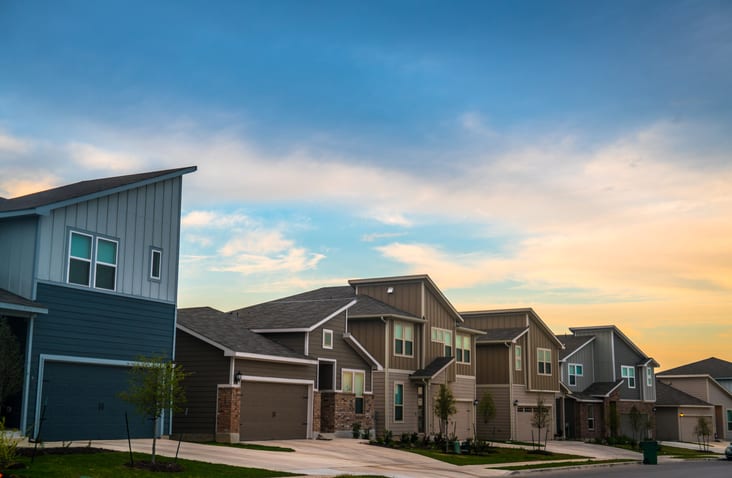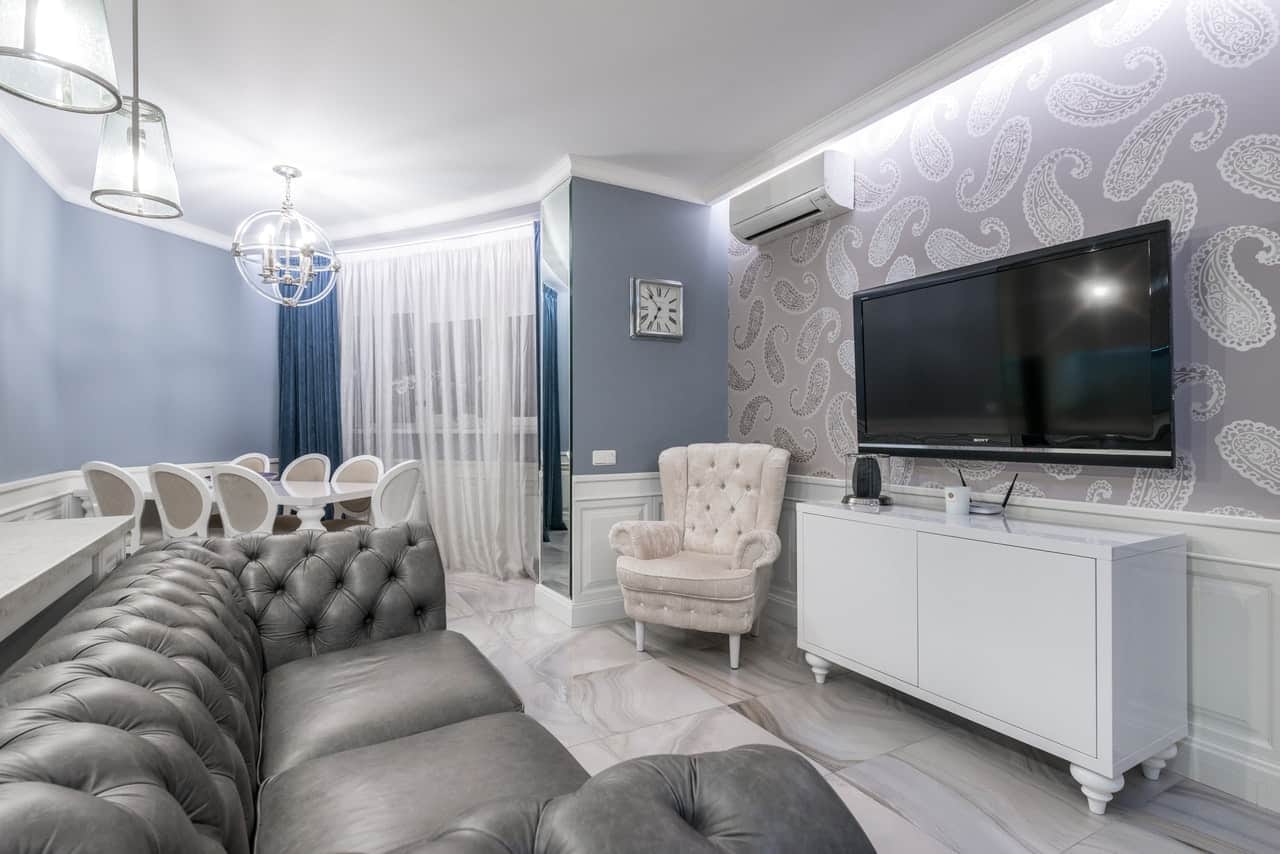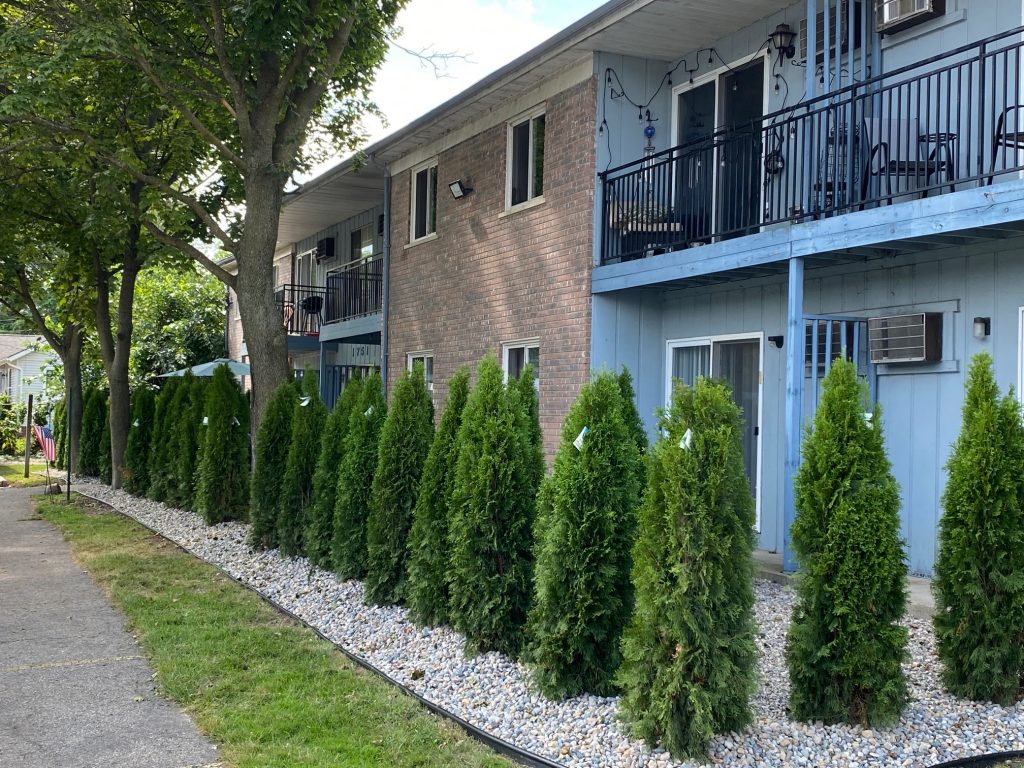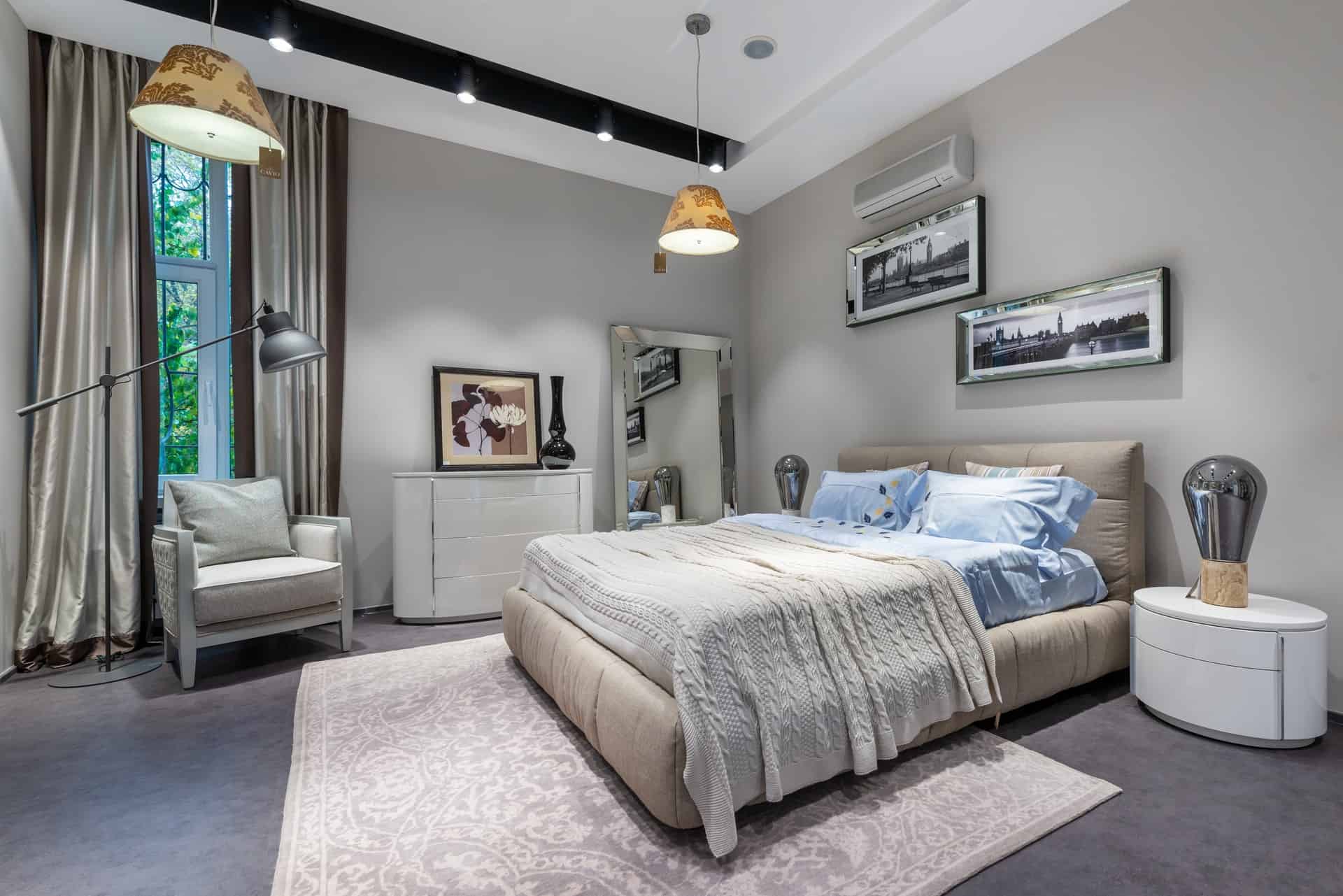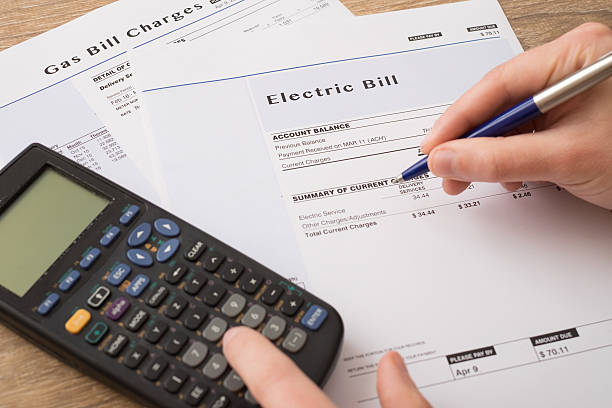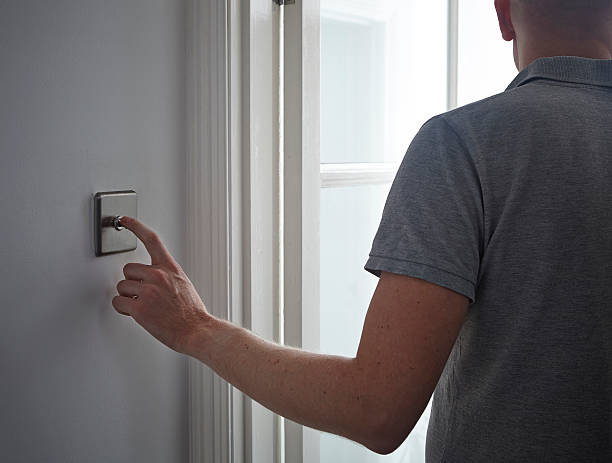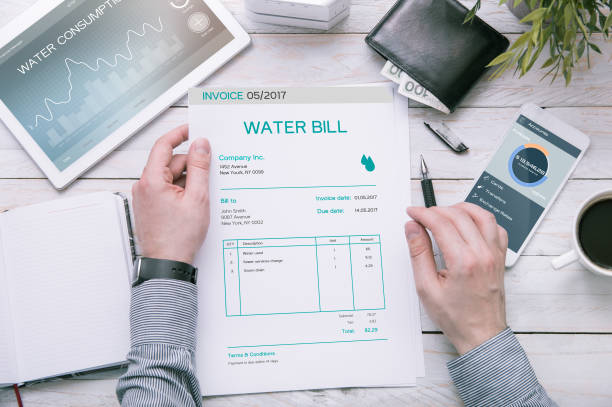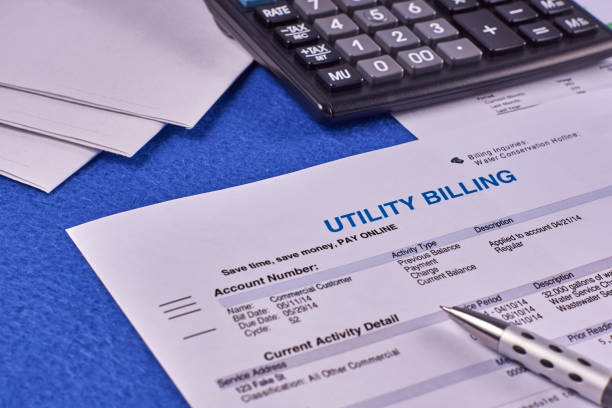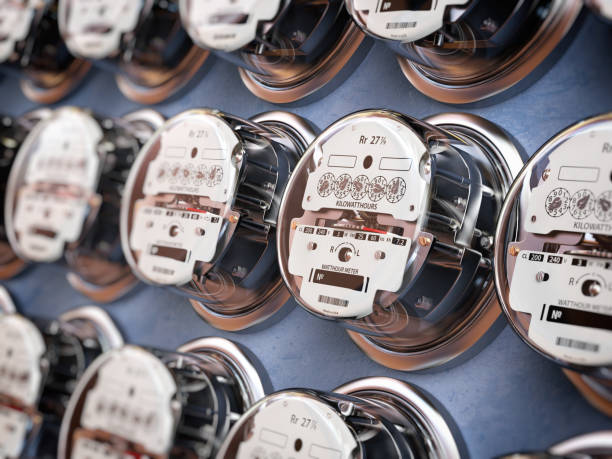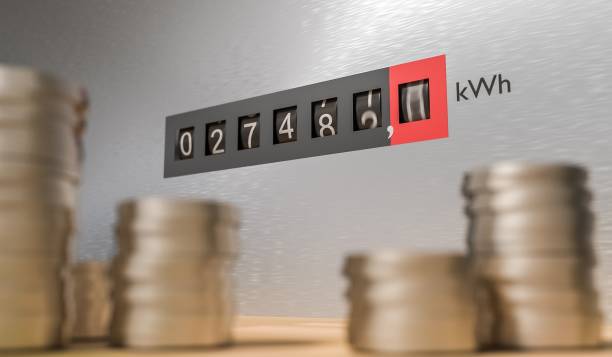November 29, 2021 at 10:50 am
·
Justin Becker ·
Comments Off on How Long Do Apartment Tours Take?
Have you ever done an apartment tour in the real estate industry? If yes, how long did it take you? If not, you’re about to find out how long they should take.
The estimated time for touring the apartment includes getting the feel of the apartment by seeing the unit and the surrounding neighborhood.
It would, therefore, help to research the apartment or neighborhood beforehand and look out for any potential scams.
When you prepare well for your tour, the apartment renting process will proceed smoothly. Here, we discuss more on apartment tours and how long it takes.
How Long Do Apartment Tours Take?
Before we focus on the length of an apartment tour, let’s first consider a few things to look for while on tour in order to get a perfect apartment.
What to Look for During an Apartment Hunt or Tour
When you decide to tour an apartment, you need to look for any red flags and damages.
Such flaws in an apartment aren’t only inconvenient, but also could be dangerous. You wouldn’t want to sign an apartment lease and meet an unpleasant surprise later.
Water, Electricity, and Appliances
Plumbing and electricity are critical requirements for modern living and might be inconvenient if they don’t function properly.
During your apartment tour, it would help to test all the light switches in the rooms to ensure the electricity is properly working. Inspect outlet covers and fixtures to ensure they are firm and in place.
If a light doesn’t work, you can figure out whether it’s a deeper electrical problem or a burned light bulb. This could be the best time to test power outlets. Plug in a small device, such as a phone charger, to see whether it charges or not.
You can also turn on the sinks in the apartment bathroom and kitchen. Ensure that the taps receive both cold and hot water and that the water pressure is acceptable.
It would also help to check the temperature and water pressure in the apartment shower and ensure the showerhead is attached firmly to the wall. You can flush the toilet as well to test whether it’s functioning properly.
Some apartments avail amenities such as stoves and refrigerators. You need to open the freezer and refrigerator to ensure the light turns on inside and that it is cooling.
You also need to test burners on the stoves, but keep in mind that the landlord might have unplugged the stove to conserve energy. If that is the case, you can ask to plug them in for a moment just to test.
Ensure that the thermostat in the unit is operational. Ask whether there is central air conditioning too. If there is no central air conditioning, ask the landlord whether they provide a window AC unit, or whether you’ll have to bring one with you.
Check if there are ceiling fans and whether they’re operational. Ensure that the ceiling fans don’t shake or wobble too much when you turn them on.
Check for Security and Safety Concerns
Apartments security involves a lot of things. The more secure an apartment is, the more safe your family will be.
Here, you need to check the doors and windows. This is a critical thing to check since any defective lock or flimsy door can expose an apartment building to break-ins.
Apart from doors and windows having functional locks, they should be able to close all the way. If possible, windows need to have screens too.
Gas leaks and fires are other dangers in an apartment to be concerned about. Here, you need to check for carbon monoxide detectors, a fire extinguisher, and a smoke detector. Some apartments might have an above sprinkler system instead of a fire extinguisher.
If your potential apartment has none of the above things, you need to ask your property manager or landlord to install them before moving in.
It’s also the perfect time to inspect floors, ceilings, and walls for any signs of water damage. Peeling paint, a musty smell, warped wallpaper, and discolored patches are some of the signs of water damage.
Remember, water damage can lead to mold or cause structural damage, which presents a health hazard.
Apartment Complexes & Neighborhoods
When you decide to tour an apartment, it will help to look at the whole apartment complex, not just the individual unit. Ask the landlord or property manager if a laundry room is available or other shared amenities.
Most apartment buildings have dedicated parking lots for their tenants, either in a covered garage or outdoors. Don’t hesitate to ask the landlord whether the apartment provides an assigned parking spot and if you’ll be required to pay a parking fee on top of your monthly rent.
You also need to walk around the neighborhood to see what it looks like. This will give you a clear picture of the area regarding the available facilities, such as roads, schools, grocery stores, and hospitals.
This can be a good time to take note of the conditions of the surrounding buildings and the streets. If possible, research on the crime rate in the area too.
What if You Find a Problem?
If your apartment inspection is positive, but you come across one thing that requires fixing, don’t be so quick to reject the apartment outright.
In such a case, the best move would be to mention the problem to your landlord. There is a high chance they aren’t aware of the problem and will try everything possible to fix it before the move-in date. This is also a good way to check on their response time to issues.
It’s the responsibility of property managers to take care of their property’s condition and be willing to fix any arising problems.
If the property manager isn’t willing to repair any problems in the apartment to accommodate you, this is a good sign to go ahead and look for another unit.
Property Managers Being Part of the Tour
When you decide to tour an apartment, you’re also meeting the landlord or property manager for the first time. During the tour, you can learn how the property manager operates the business.
This is the time to note the property manager’s behavior. Are they accommodating and friendly? Do they arrive early for the tour?
Is the property manager willing to answer your questions, or are they offering elusive and vague answers? A landlord or property manager needs to be professional during the tour.
The property manager is the person you’ll contact in case of any problem in the apartment. They’re also in charge of any maintenance requests in the unit. It would, therefore, be good to see that they are trustworthy and helpful in all possible ways.
Are You Being Scammed?
Even before you tour the apartment, ensure you aren’t dealing with a scammer. Do thorough research to ensure you’re engaging a trustworthy landlord.
The Federal Trade Commission highlights some types of rental listing scams:
Phantom Rentals
Phantom rentals represent fake listings for non-existent locations. A phantom rental scam tries to extort money from people upfront before they realize that the listing is fake.
Scammers achieve this by promising amazing amenities and low rent that seems like a bargain. You should be aware of apartment listings that appear too good to be true.
Hijacked Ads
Scammers sometimes make legitimate listings, but then repost them on a different site with altered contacts.
Even though the property is real in this case, the person you contact isn’t the rightful owner. Since the scam artists don’t have direct access to the apartment, they try to get an advance rent or security deposit, without giving you a chance to tour the unit.
It would, therefore, be important to avoid paying the landlord any money without first touring the apartment. The landlord or property manager should not force you to pay anything until you sign a lease or some sort of security deposit document.
This is the reason why it’s crucial to tour an apartment. A real landlord or property manager has the keys to the apartment and will be more than happy to show you around.
Red Flags to Look Out For
If the apartment owner is forcing you to pay either the rent or security deposit before you’ve signed the lease or any documentation, they’re scamming you.
A scammer can also request you to make unusual payment forms, such as wire transfers. Since wire transfer is similar to a cash payment, you won’t get your money back after sending it.
Avoid sending money through wire transfer or any payment method that sends money overseas.
You must be suspicious if the manager isn’t willing to talk over the phone or meet in person to show you the actual unit.
If the property manager is difficult to contact, it’s a sign of a scam. It’s also a sign of a poorly managed apartment. In such a case, even if the apartment is genuine, a landlord who can’t respond now won’t do so in the future when you become a tenant.
If the property manager or apartment owner isn’t within the country, you should get worried. Avoid landlords that arrange for you to pick keys up from an associate.
This is why we recommend that you visit the apartment in person and sign the lease or some form of documentation before making any payments. Never allow the property manager rush you through the tour.
Reporting a Scam
Suppose you suspect a listing is a scam or fall prey to a scammer. In these cases, you should immediately report to the relevant authorities, including the FTC (Federal Trade Commission) and local law enforcement.
The Federal Trade Commission is a federal agency that protects legitimate businesses and consumers. It’s tasked with preventing unlawful and unfair business practices, such as rental scams.
By reporting a scam, you’ll get a fake apartment listing from the rental industry and protect other shoppers. The FTC has a page on its website where you can report fraud.
The site will guide you through filing the report and provide the resources to avoid fraud.
The Federal Trade Commission shares your report with over 3,000 law enforcers in the U.S.
Why an Apartment Tour Takes Longer
When you have an apartment tour, it might be the first time you see the unit. In many cases, the tour is a preview of how the landlord runs his apartment.
Generally speaking, a successful apartment tour can take about an hour. This estimate involves the time you’ll take to see the unit, along with the apartment building, and experience the surrounding neighborhood.
Sometimes, the tour might take more than one hour. This can be attributed to the longer periods taken to research potential apartments.
During the touring date, you’ll have to keep a keen eye on security and safety. You’ll also want to take more time inspecting the spoiled wallpaper, peeling paints, musty smell, and discolored patches.
There are times you might spend more time inspecting the rest of the property and the neighborhood. This might take more time than the expected one hour.
Conclusion
When you plan a real estate apartment viewing, ensure you set aside at least an hour for a thorough inspection.
Don’t allow the landlord to rush you through the tour. Remember to inspect critical things, such as lighting, water, and electricity.
You also need to take care to avoid scam artists. If you suspect any scam, report to the relevant authorities.
Always tour an apartment before signing the lease and making payments. You can also involve leasing agents through the process. A leasing agent will help you get the best apartment at an affordable price.
Read more
November 22, 2021 at 1:27 pm
·
Justin Becker ·
Comments Off on What is Prorated Rent?
Ideally, people move into their rentals on the first of the month, and when their leases expire on the final day of the month, they move out.
Life, on the other hand, is rarely so straightforward. A circumstance arises that requires you to move-in later, such as the middle of the month or near the conclusion of the month.
For example, until repairs are completed, you may not be able to call your new apartment or house your home.
Fortunately, most landlords will charge you prorated rent (number of days you occupy the property) rather than a full month’s rent.
First and foremost, however, what exactly is prorated rent? How can you figure out how much rent you’ll have to pay? What is the mechanism behind it?
Here, we provide accurate and straightforward answers to all of these inquiries.
What is Prorated Rent?
A prorated rent is a payment made by a tenant that is dependent on the number of days they occupy a property.
To put it another way, it’s the rent a tenant pays based on the date they moved in. It reflects the rent payments due for a partial month of occupancy.
A prorated rent is a reasonable approach for landlords to compensate tenants who cannot move-in at the start of their lease agreement due to circumstances beyond their control.
Even though prorating rent is a boon to tenants, the property manager is the one who loses the most in this situation.
Often, the property manager will forego the revenues for a number of days to accommodate you.
To clarify, pro-rated rent, pro rated rent, and prorated rent all refer to the same thing.
How Do You Benefit from a Prorated Rent?
A prorated rent amount provides financial advantages to the tenant. A property manager willing to give up a certain number of days’ worth of rent to let you in will benefit you in the following ways:
You’ll Save Money
Moving in can be financially draining, if not outright impossible. Many tenants are concerned about the upfront expenditures. For this reason, it’s only natural to try to save as much money as possible during this period.
If a property manager agrees to have your rent prorated, the benefit is that you will save money to put towards other things.
Establish a Rapport with the Property Manager
Not only would a prorated rent amount save you money, but it will also help you build a bond with your property manager.
A compassionate landlord often makes a positive impression on their tenants. This might be the start of a wonderful tenant-landlord relationship, where there’s mutual trust and fairness.
It Tells You Who Your Landlord Is
The willingness of a property manager to accept a prorated rent speaks volumes about their character. If they charge you a month’s rent, you can bet they’ll try to squeeze you at every opportunity. It warns you to prepare for tougher times ahead.
Is it true, however, that agreeing to a rent prorated benefits the property manager as well? It certainly does!
Even though they will lose several days’ worth of money, they will gain in the long run. In fact, one of the advantages is that they will have a higher chance of securing a long-term tenant.
How Does Prorated Rent Work?
Prorated rent is a simple idea to grasp. The amount of days you stay at a house is what you pay rent for. For example, if you stay in a property for 20 days, you just pay for those 20 days, not a full month’s rent.
Are Landlords Legally Required to Prorate Rent?
Many wonder whether or not property managers are legally required to prorate rent as you wish.
Well, a property manager has no legal obligation to offer prorated rent. On the other hand, a prorated rent can be a kind of favor from a property manager and, hence, is not a must-have.
As a result, whenever you approach the property manager, act as though you’re requesting a favor (prorate rent) rather than asserting your claim to it. If you approach the property manager forcefully, on the other hand, there’s a good possibility your request will be denied.
No reasonable property manager would forego a number of days’ rent for someone who feels entitled.
Negotiate Before Signing the Lease Agreement (prorated rent agreement)
Negotiating prorated rent is best done shortly before signing the lease agreement. If you explain your desire during this time, the property manager will be more likely to accommodate you.
Also, because the property manager is anxious to fill the vacancy before signing the lease, they will prorate rent because you have some negotiating power.
If you negotiate prorated rent price after you’ve signed the lease, you’ve probably given up any leverage you had. Furthermore, your lease agreement may include a clause or term forbidding prorated rent.
As a result, always read the lease carefully before signing it. Also,iIf there is any room for negotiation, do so before signing it.
How to Calculate Prorated Rent
It’s not difficult to calculate prorated rent that you’ll have to pay. With that said, calculating prorated rent precisely and fairly is crucial.
You don’t want to be in a scenario where you’re paying more than the calculation suggests.
The concept of prorating rent is rather straightforward, and most approaches involve two phases.
The first two steps are establishing the daily rent rate and multiplying it by the number of days the tenant occupies a residence.
Here are the four ways prorated rent is typically calculated:
- Using Days in a Year Method
- Using Days in Specific Month Period
- Using Days in an Average Month Method
- Using Banker’s Month Method
Using Days in a Year Method
In this method, you should multiply the monthly rent by 12 to get the total yearly rent, then divide that figure by the number of days in a year to get the daily rent (365).
For example, if your monthly rent is $1,500, the daily rate is $49.31 (18,000/365). With that said, multiply that figure (daily rent) with the number of days you occupied the home. So, if you occupied the home for 16 days in a month, your prorated amount should be $788.96 (49.31×16).
Using Days in Specific Month Period
If you’re on a month-to-month lease, this strategy will work for you. This method, in theory, determines the daily rental fee based on a certain month.
To obtain your prorated amount, divide a monthly fee by the number of days in the month in question. For instance, if you are moving into your apartment in the month of January and your monthly rent price is $1,500, your daily rental cost is $48.38 ($1,500/31). If you stay in the apartment for 18 days during the month of January, your prorated amount should be $870.84 ($48.38 x 18).
You should be aware that the outcomes of employing this strategy will vary depending on the month and year (leap year). The daily rent for a $1,500 a month apartment in February, for example, is $51.72 ($1,500/29), in a leap year, as opposed to $53.57 ($1,500/28) in a normal year.
Using Days in an Average Month Method
This method is similar to the “Using Days in a Specific Month Period” method, but it changes slightly.
Instead of calculating the daily rent based on a month’s rent, this technique calculates the daily rent based on the average number of days in a month.
Taking this into account, the average number of days is 30.42 (365/12). Divide the month’s rent by the average number of days in a month, then multiply the result by the number of days you lived there to get the prorated amount.
For example, if your monthly rent is $1,500 and you occupied the home for 20 days, your prorated amount is $986.19 ({$1,500/30.42} x 20).
Using Banker’s Month Method
This method, in theory, is to calculate prorated rent using the daily rental cost based on the average number of days in a month. The monthly rent is divided by 30 days, the number of days in a Banker’s month.
For example, if your month’s rent is $1,500 and you occupied the home for 20 days, your prorated amount is $1,000 ({$1,500/30} x 20).
You should ideally be aware of your landlord‘s prorated amount calculation process.
Using a Prorated Rent Calculator
Manually calculating prorated rent might be tedious at times. As a result, adopting online tools can reduce headaches and speed up the process.
To make your job a little easier, join up for the following online tools:
- RentVine Prorate Calculator
- Good Calculators Prorated Rent Calculator
- Omni Prorated Rent Calculator
When to Collect Prorated Rent
In the instance of a mid-month move-in date, the prorated rent should be collected on the second month of tenancy. By this point, the tenant should have already paid the first month’s rent and the security deposit, as is customary.
In the case of a move-out, the prorated amount should be collected at the beginning of the month or the week.
Any rent owed to the new owner would be paid at closing if a rental property was sold in the middle of the month.
Methods of collecting rent vary from property managers. Some initiate collecting rent on the first day of the month, while others on a different date.
Reasons a Landlord Would Prorate Rent
Prorated rent is something that a reputable property manager would be willing to provide you. Repairs and responses to emergencies, among other things beyond your control, will reveal the true character of your new property manager, as well as whether or not they will accept your request for a prorated rent.
Many people wonder what may cause a property manager to offer prorated rent. Here are a few reasons why a property manager could agree to accept your request for prorated rent:
Selling Rental Property
When a rental property is sold, there’s a good chance that the tenants are still there. With that said, depending on the date of sale, both the buyer and the seller are entitled to a specific amount of rent.
As a result, the property manager will compute the prorated rent required and what is owing to the new owner. For example, if the property were sold in the middle of the month, say the 15th of July, the new owner would be entitled to some of the rent dues for July, from July 15 to July 31.
Vacation Rentals
Because tenants frequently rent vacation homes for an odd number of days, it would be unreasonable for the property manager to charge a full month’s rent when they only stayed for a few days.
As a result, the property manager will calculate the daily fee and multiply it by the number of days the tenant is in residence. With that said, you’ll pay the total rent for the period you occupy the property.
Tenant Needs to Stay Longer than Lease
As previously stated, things may not go according to plan, and your assumption that you’ll be able to move into your new apartment on the first of the month may not be accurate.
If, for example, repairs cause your move-out date to be postponed, your existing landlord may prorate your rent and charge you for the additional number of days you occupy the property rather than charging you for the entire month.
Tenant Legally Breaks Lease Early
A tenant can legally break a lease arrangement early in certain circumstances.
If a renter is on active duty military orders, they have the right to break the lease early without incurring any costs. As a result, the tenant will only be responsible for paying rent until the day they vacate the premises.
Furthermore, a victim of an assault has the option of breaking the contract early and paying the rent until the day of their departure.
Mid-Month Move-In Date
Many people anticipate moving into their new place on the first of the month. However, this doesn’t always happen. As a result, they’ll have to wait, depending on the situation, before they move-in.
Ideally, you have paid the first month’s rent and the security deposit. Depending on their circumstances, the landlord may be ready to prorate rent based on the number of days the tenant occupies the residence during the month.
Prorated Rent from a Landlord Perspective
Prorating rent is advantageous to you as a landlord.
Suppose tenants pay the first month’s rent and move-in late, and you offer prorated rent. In that case, this not only demonstrates your adaptability in a scenario, but also improves the chances of a long-term relationship with your tenant.
The tenant will also realize that you aren’t here to take every penny out of their wallet, but rather to be fair. Waiving a number of days’ rent will change their perception of you as a landlord.
Prorated Rent from a Tenant Perspective
Prorating rent as a tenant is one of the ways to make sure you’re not paying more than you should be. Paying for extra days that you didn’t occupy the property may feel like unfair treatment from the landlord.
Furthermore, prorating rent can be used as a litmus test to see if your landlord is out to get every last bit from you.
Final Thought
One of the most effective strategies for a tenant to save money while renting a property is to prorate the rent. If a tenant moves in or a tenant moves out in the middle of the month, a decent landlord will be willing to waive a number of days’ rent for them.
If you’ve paid the first month’s rent and prorating rent isn’t an option, you’re likely to feel cheated, and your relationship with the landlord may not be as positive as you had hoped.
Examine the lease agreement before paying the first month’s rent to see if any restrictions are preventing prorating rent. If there aren’t any, speak with your landlord about the move-in date and negotiate a prorated rent before signing the lease.
Read more
November 15, 2021 at 12:21 pm
·
Justin Becker ·
Comments Off on Are Apartments Better than Houses?
Whether you’re moving out of a home, cohabiting with your partner, or moving towns, you’re likely to find yourself looking for a home option in the real estate market.
For many people, it might mean selecting between living in an apartment or a house.
The option you select should depend on the advantages and disadvantages of each alternative. However, in the end, you might find yourself settling for an apartment building.
Here, we explore how living in an apartment presents more benefits than acquiring a house.
Are Apartments Better than Houses?
Yes, living in an apartment presents more benefits than a house offers, but how?
Let’s look at how living in an apartment vs. house is better:
Easy Property Maintenance
One major benefit of renting an apartment is that you don’t own the property. It’s, therefore, not your priority to ensure that the property is in good shape.
If you own a house, it becomes your responsibility to fix any damages that occur. The actual cost of fixing damages will depend on the level of damage. It’ll also depend on whether you hire a professional to help you or do the task yourself.
For an apartment, when your roof is leaking, the dishwasher is faulty, or you have any maintenance problem, you just need to get in touch with the property manager to resolve everything. You’ll only be responsible for the maintenance costs of the damage resulting from your negligence.
Things like shoveling snow from the sidewalk and driveway during winter will also be done by your property manager.
Apartments are More Affordable
Many believe that apartments are cheaper compared to houses. Let’s consider the cost associated with each unit:
House
Below are things you might be forced to pay for while purchasing a house:
- The Down Payment: It represents a part of the total cost of the house that you’re required to pay before it’s fully yours. Even though several factors determine the down payment amount, it’s typically between 10–20% of the house’s value in most cases.
- Earnest Deposit: You need to pay this amount to show your seriousness in getting the house. In most cases, the amount is 3% of the house value.
- Appraisal: If you want to pay for the house using a mortgage, the lender might be forced to do a house appraisal to ensure that its value aligns with the amount you asked for. A house appraisal will typically cost you $300 to $400.
- House Inspection: The home inspection is meant to enable you to identify any problems in the house before you buy it. Since you don’t have the experience to inspect the house yourself and might miss important things, you need to hire a professional home inspector. The cost of inspecting a house is almost the same as that of an appraisal.
- Property Tax: Depending on the county and state laws, you might be required to pay taxes for owning a house. The tax is effective after buying the house, and each year after that.
- Homeowner’s Insurance: Most state laws require that you insure your house in case of robbery, fire, or other incidents. The insurance cost depends on the house value, your credit score, the home location, among other factors. The amount is also paid after you acquire the home, and annually after that.
- Closing Costs: You’ll also be required to pay closing costs such as title insurance, loan origination costs, closing fee, and others. In most cases, the amount is 3% of the home value.
- Monthly Payments: Unless you pay cash for the home, you’ll have to pay monthly mortgage payments until you pay it off. Other payments you’re required to pay include water, internet, cooking gas, garbage, and recycling.
- Maintenance Costs: Since you own the house, you’ll now be in charge of the repair and maintenance around the house. Proper maintenance and repair helps ensure that your house value doesn’t depreciate.
Apartment
Renting an apartment attracts fewer initial payments than buying a house. However, the expenses for an apartment recur monthly.
Below are costs associated with renting an apartment:
- Security Deposit: It involves the money you pay the landlord or property manager when signing the lease. If you decide to vacate the apartment, you’ll get the deposit back. However, in case of any damages, the deposit covers the repairs. If you break the lease or default on paying rent, the deposit goes towards that. The security deposit for many apartments is 1.5 times the monthly rent amount. This is typically an easier upfront cost to cover than the initial payment you must make before purchasing a house.
- Rent: This represents the monthly payment you make for living in an apartment. The actual amount depends on different factors, including the apartment location, the location’s real estate market rates, the property age, how much space you wish to occupy, and the size of the apartment. If you plan on keeping pets, you might have to pay pet rent to protect the apartment against pet damage.
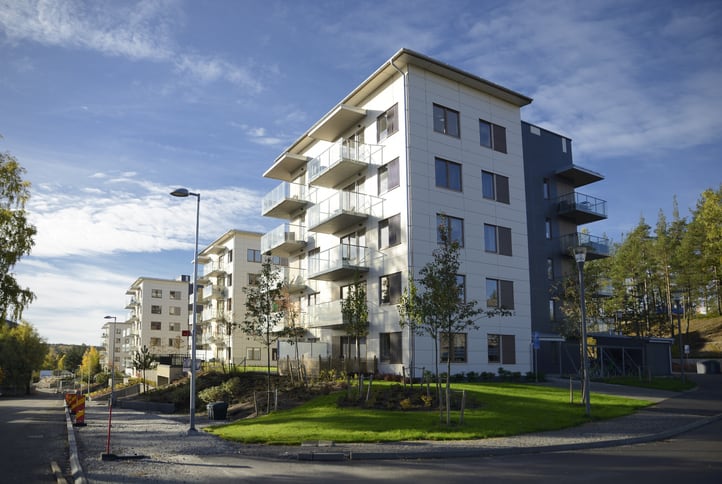
- Renter’s Insurance: The renter’s insurance for an apartment isn’t as expensive as a house. With that said, it serves the same purpose of protecting your home against fires, theft, and accidents. You might have to pay as little as $15 for this cost. This is cheaper compared to the more than $100 paid monthly on house insurance in the real estate industry.
- Utilities: There are costs like water, electricity, and gas that are normally included in the apartment rent. Some exceptions might require you to cover such costs separately, however it depends on the apartment that you’re renting.
- Laundry: Many apartment buildings don’t have a washer/dryer in the units. It’ll, therefore, force you to share the machine in the apartment buildings or find a laundromat. The cost of laundry will depend on how you want to do your laundry.
If you have an average credit score and would like to avoid the hefty costs of purchasing a house, an apartment would make a perfect option for you.
The cheaper cost of renting an apartment can be associated with them having less space. Having more space in an apartment or house means an added cost.
Most Apartments Offer Increased Safety
Safety is always a top priority for those considering the advantages and disadvantages of an apartment and a house. Apartment living offers added security that you won’t find in any house.
For instance, many apartment complexes are fitted with controlled access, gated communities, extra fire protection, and security cameras.
The close proximity to neighbors in an apartment building also offers a security advantage compared to a house. If something happens, you can sound an alarm, and your neighbors will be there in no time to help or alert the authorities.
Better safety features make apartments the best options for families with children, those living alone, those seeking peace of mind, or the elderly.
Most Apartments Have Great Amenities
Apartments come with some of the best amenities you’ll ever find. There is convenience and recreation right outside the doorstep, something that is much harder to find in single homes due to their typical location in suburban areas. For instance, it’s easier to come across convenience stores when living in apartment buildings.
Some of the exciting amenities you’ll find in apartments include swimming pools, playgrounds, clubhouses for big parties, automated smart homes, and a fitness center. Even though you can have some of these features in your home, the cost can be high for your budget.
Some unique amenities you’ll get in your own apartment include salons, pet spas, movie theaters, hiking trails, and underground heated parking. Apartments, therefore, offer upgraded living without any added costs. Very few houses offer such exciting amenities, and none are at an affordable price.
Apartments Offer the Gift of Time
Most people never seem to have enough time on their side. Anything that saves your time is important, and that is exactly what apartment living offers.
You don’t need to worry about fixing stuff around the apartment or maintaining the yard. If you live in an apartment in close proximity to your workplace, you get a chance to save on commute costs.
Therefore, you’ll get enough free and valuable time to spend with your family and engage in things you love.
Engaging in a lifestyle that offers you the gift of time is a priceless opportunity.
You’ll Have Short-Term Options
Apartment living can be the best option for you if you don’t like staying in one place for a long time. When it comes to house vs. apartment, an apartment offers you the freedom to move anytime you want.
Many apartments offer short-term leases. The lease arrangements can cover three months, six months, or twelve months. You’ll have even more flexibility with corporate living options.
With a house, you’ll get locked into a mortgage and will have to spend money and time to put it on the real estate market when you want to move. Apartment living, therefore, offers fewer complications and less stress when moving.
Experience Great Community Living
Even though some housing neighborhoods still build a community setting, like mobile home communities, the opportunities are greater in an apartment complex. Apartments provide ample opportunity for people to spend time together and offer closer proximity to neighbors than a house.
Apart from just living in close proximity to your neighbors, many apartment complexes take the community living a step further. There are apartment parties and barbecues that give people a chance to interact and get to know one another.
Additionally, running into each other at apartment amenities, such as a fitness center, creates more room for people to interact and know each other. However, you also risk living closer to noisy neighbors in the next apartment.
Build Your Savings
Living in an apartment presents a great chance for you to save for your future. Many people find it difficult to save money with the cost of house living on their neck. When you have smaller expenses that come with living in an apartment, you’re able to save more money for the future.
You’ll therefore have a whole new world of possibilities. Whether you want to travel more, save for retirement, or send your children to college, apartment living puts you on the right financial trajectory to make it happen.
Top Amenities to Consider in an Apartment
There are several amenities to consider while renting an apartment, as we’ll highlight below:
In-Unit Appliances
Some appliances are critical in an apartment, which include a stove or oven. Without them, you won’t be able to cook in your apartment.
Even if you consider yourself an order-out-every-night type of person, there are times you would like to cook and enjoy your meals. You might also get convenient appliances in your apartments, such as a dishwasher, washer, and dryer.
With that said, the neighborhood should have a laundromat even if the apartment doesn’t have an in-unit washer and dryer.
Furnished Units
Even though a furnished unit is a nice convenience, you need to understand that it comes with higher rent rates. Apartment living and furnished units are perfect for you if you don’t plan on settling at a place for long.
For instance, if you’re moving into a neighborhood for a short-term job assignment or internship, a furnished unit can save you a lot of money.
Pet-Friendly Apartment Units
If you’re into keeping pets, you need to find apartments that are friendly to pets. However, you need to understand that it’ll most likely come with monthly pet rent and a pet deposit.
There is also a risk of losing the security deposit if your pet causes damage to the apartment.
Air Conditioner and Heat
Some places require either an air conditioner or a heating system. It’s, therefore, critical that you consider these appliances while selecting an apartment for your family.
Private Outdoor Space
This can take the form of a balcony that can be accessed within your apartment. Spacious and big balconies are great, especially if you like catching some sun rays or barbecuing.
With that said, you need to understand that balconies can drive up your rent.
Updated Kitchen
This can mean everything from a brand-new, fully-renovated kitchen to a new sink tap. It might also mean paying more in rent.
Parking
Street parking takes a lot of time and makes it difficult to find a spot. With apartment living, you’ll typically get a spacious parking space within the complex.
Internet
Access to the internet is another top amenity that you need to consider. Some apartments include internet access charges in their monthly rent.
In other cases, you might be forced to request for your independent installation. If this is the case, please note to ensure that the apartment allows internet installation.
Security Measures
Apartments that take security seriously are available for rent at a higher price. However, good security is something you need to look for in an apartment.
Here you need to consider security cameras, on-site security staff, carded community entry, and triple unit door locks, among others. They will secure your apartment from theft and keep you and your family safe.
Swimming Pools and Fitness Centers
A fitness center and swimming pool offer an opportunity to relax and improve your body fitness. You should, therefore, look for an apartment that offers both of them. Just keep in mind that these might come at an added cost.
Read more
November 8, 2021 at 12:06 pm
·
Justin Becker ·
Comments Off on Bloomfield Lakes Apartments vs. Cass Lake Front Apartments
Whether you’re planning to move to Michigan or are already there and looking for your new dream apartment, check out the property options around Keego Harbor.
This is a gorgeous place, located along two lakes; Sylvan Lake and Cass Lake. The community is a small one, with just around 3,000 people at present.
The Keego Harbor property initially started out as a sort of resort. Now, however, it’s a charming little town that can be the perfect place for settling down. It’s safe, friendly, and might provide the perfect life for a lot of families.
Places to Live in Keego Harbor
Fortunately, Keego Harbor has quite a few nearby neighborhoods that have apartment complexes for small families and individuals. Bloomfield Lakes Apartments and Cass Lake Front Apartments are two of the main choices available to those who want to settle down here.
Not every property is the same. So, how do we know what’s best for our housing needs right now? Before choosing any specific apartment, let’s compare the ups and downs of choosing either Bloomfield Lakes or Cass Lake Front Apartments:
Bloomfield Lakes or Cass Lake Front Apartments: Which One to Choose?
There’s a lot to unpack before deciding to go for any property to live in. You may have to decide between vacation rentals or apartments by the lake.
Making the decision to sign a lease for a year can be overwhelming, but you also have to act according to the availability of housing.
To make sure of an informed decision, we’ll be discussing the top pros and cons of choosing Bloomfield Lakes or Cass Lake.
Bloomfield Lakes Apartments
Bloomfield Lakes Apts. is a housing complex that’s located at 2920 Schroeder Blvd, Keego Harbor, MI 48320.
According to online reviews, the apartments it provides are somewhat older units, but still provide a modern way of living. Overall, it seems to be a good spot for short-term housing, but the following pros and cons will give you a deeper insight.
Pros of Living in Bloomfield Lakes Apts.
Here are the upsides of living in Bloomfield Lakes:
1. Positive Online Reviews
If we check out the online reviews from people currently living in Bloomfield Lakes, the response is mostly positive. Many tenants have been there for some years and have nothing but praise for the manager, close-knit community, and the apartments themselves.
They are also satisfied with their neighbors, saying that the people here are respectable and look out for one another. Managers are professional, polite, and deal with issues as quickly as possible. In fact, some reviews state that they can call the maintenance department directly and not have to go through the manager in every case.
2. Several On-Site and In-Unit Facilities
There are many on-site facilities available to those who occupy an apartment in Bloomfield Lakes. These facilities include bike storage, laundry rooms, and outdoor picnic areas, among many others.
For in-unit facilities, the list is also an impressive and accommodating one. Each unit has heating, air conditioning, and a high-speed internet connection.
Cons of Living in Bloomfield Lakes Apts.
The cons of living at Bloomfield Lakes, 2920 Schroeder Blvd, Keego Harbor, MI 48320 are apparent as well. So, let’s have a look at them:
1. Low Availability of Housing
The main downside of selecting Bloomfield Lakes Apartments is that the availability of units is likely to be low. There are just 28 units in the complex. It can, hence, be hard to find a suitable apartment from the limited choices.
2. Increasing Daily Costs
The coronavirus pandemic has caused many people to lose their jobs. With the future being so uncertain, several potential and current tenants may no longer be able to afford the high rent in Bloomfield Lakes. Even if they are able to do so, they might prefer a place that’s more modern in every way.
Should You Live in Cass Lake Front Apartments?
The Cass Lake Front Apartments property is located at the address 1751 Cass Lake Front Rd, Keego Harbor, MI 48320. This places it quite near the city of Detroit.
Pros of Living in Cass Lake Front Apartments
There are a lot of upsides to living in this property located across the street from Cass Lake. Check them out below before looking up the availability of apartments there:
1. Excellent Location
The location of this property is an excellent one. It not only has the amazing lake view, but Detroit is not too far off either. This means that those with an occasional craving for the fast-paced life can easily get to the city whenever they like.
The downtown area is also just two minutes away, which means easy access to delicious cuisine in all sorts of restaurants, interesting museums, galleries, shops, and even nature parks.
The E.L Johnson Nature Center is a great option for those who have nature-obsessed kids or are interested in the subject themselves. Check out a comparison between houses for sale and apartments for rent in this Michigan property as well.
2. Availability of Many Top School Choices
If you plan on settling down with your children, it’s always best to choose a property with easy access to good schools. Fortunately, this Cass Lake property offers just that.
With an apartment here, you’re very close to the West Bloomfield Woods, Waterford, and Bloomfield Hills schools.
All of these institutes are known for their excellent academic records and extracurricular activities for a well-rounded education. Overall, you can do much worse than settle in Cass Lake, for the sake of a great school, for the youngsters in your family.
Within the Keego property, there are all the instructions you need for quality education, including elementary school, tertiary schools, colleges, and universities. Many of these schools have convenient arrangements regarding transportation, fees, and other points of interest.
Perhaps, the best educational institute of the lot is West Bloomfield High School. This school has a graduation rate of around 97 percent.
Keego also boasts several amazing educational opportunities such as the Baker College of Auburn Hills. The Auburn Hills Colleges Drive is also just a short drive away, which is a perfect reason for living at this property.
3. Nearby Grocery Stores
Groceries are an essential part of everyday life, no matter where you’re living. So, the availability of grocery stores is a major factor in deciding where to live.
Luckily, Downtown Keego has the Lakepoint Market located near it. This place offers fresh produce, along with all the groceries you need, on a daily basis.
There are also some major Kroger grocery stores in nearby properties, which have everything you need in the way of food, household products, etc. There’s no need to drive long distances to get your basic needs because this area has them all.
4. High Quality of Life
When you live at these Apartments, you’re almost guaranteed to have a very high quality of lifestyle.
The property has several nearby conveniences, above average schooling opportunities, and a close-knit community, which are just a few factors that make for a peaceful, idyllic life.
This is just what the location gives you; the apartment complex itself offers a lot of amenities and enough facilities to stay comfortable.
Several aspects of life, including laundry, exercise, and maintenance, are very convenient to deal with here. There are also quality social services in the area, along with gorgeous scenery, and several choices for dining out or ordering in.
5. Useful Apartment Features and Amenities
These Keego Harbor apartments are equipped with a modern galley kitchen, including updated fixtures and other features for your convenience. These include a large fridge, modern appliances, granite countertops, custom cabinetry, and much more.
Cons of Living in Cass Lake Front Apartments
Where there are so many advantages, there are probably certain disadvantages to consider as well. Take a look at the cons of living on this property:
1. High Rental Rates
Since these apartments offer such a high quality of life and many amenities, the rental rates are inflated accordingly. While the property rates might still be reasonable, as compared to other apartment complexes in the area, they might still be out of reach for many small families.
2. A Problematic Pet Policy
This apartment complex doesn’t really have a flexible pet policy.
In spite of the natural surroundings and on-site outdoor areas, the apartments here usually don’t have a pet policy or only allow residents to keep pets. Naturally, this presents a problem for those who have pet dogs or some other animal.
You can compare Cass Lake Front to Cass Lake Shore Apartments and see which one has the better policy.
The Takeaway
While Bloomfield Lakes and Cass Lake Front Apartments might be around the same location, their offerings are very different.
Overall, though, it does seem like the Cass Lake Front property is by far the better option.
It has got a more modern style, more amenities, and better policies for potential tenants. On top of that, you have the great schools nearby to consider for your children. Make sure to compare houses versus apartments in Keego Harbor as well.
When you’re looking for a likely apartment to live in, there’s a lot of information for each relevant choice out there. You can check out property websites, real estate websites, apartment sites, online rental reviews, and online private listings for Keego Harbor, MI 48320, or any other zip code.
Before making any decisions or even going on a tour of an apartment, make sure to check out all the details online or through a call. Your dream apartment in Cass Lake Front Apartments might be waiting; so start checking out the listings today!
Read more
November 1, 2021 at 1:04 pm
·
Justin Becker ·
Comments Off on When Can Your Landlord Increase Rent?
Rent increases are a common occurrence during anyone’s tenancy in a rental unit. Even in some areas that don’t have rent control laws, there is no limit to the increase that a landlord can make on rent.
With that said, landlords aren’t allowed to raise rent as they wish. Most states have rent control laws and regulations that guide the amount, the timing, and the communication that a landlord follows to effect rent increase.
For instance, the landlord isn’t allowed to have discriminations in their rent increase systems. Here, we look at when your landlord is allowed to implement a rent increase.
When Can Your Landlord Increase Rent?
Except in places with rent control laws, your property manager’s legal right to increase your rent depends mainly on whether you’re a month-to-month tenant or have a lease rental agreement.
For instance, if you have signed a lease agreement, the landlord can’t raise the rent until the lease expires. However, they can only raise the rent if you agree to it or if the lease provides for it.
If you’re under a month-to-month rental agreement, your landlord can raise the rent by providing proper rent increase notice. In most cases, the notice should be given at least 30 days before the increase.
As per requirements, the rent increase notice should be put in writing. Verbal notices aren’t allowed as proper notice by rent control law. However, there are cases where certified mail can be used.
Effect of Rent Raise on Security Deposit
In most cases, a rent increase will trigger an increase in a security deposit.
Many states, including Michigan, limit what a property manager or landlord charges for the security deposit. The deposit is capped as a multiple of your monthly rent. For instance, the maximum deposit might be twice your monthly rent, depending on the state of course.
This, therefore, means that if rent increases legally, then the security deposit will also increase legally. For instance, if your deposit is capped at twice the monthly rental amount and the rent increases from $1,000 to $1,100, then expect the deposit limit to increase from $2,000 to $2,200.
Responding to an Illegal Rent Increase
You might be wondering, what action should you take if your landlord fails to give you a proper written notice for a rent raise?
If you have a month-to-month agreement, it shouldn’t be a big deal. It would be better if you agreed to the increase rather than insisting on fighting for your right. In such a case, all the landlord has to do is serve you with a 30–day notice.
The landlord must offer you a rent increase in writing to prevent the amount from growing mysteriously.
If not provided, ask the landlord to submit a letter of understanding confirming the new terms, or a new lease agreement confirming the new arrangements.
The situation, however, is different if you have a lease agreement. A lease protects you from any rental increases. Your landlord, in this case, can only raise the rent once your current lease expires.
Rent Increases as Discrimination or Retaliation
Landlords aren’t allowed to implement a rent increase in a discriminatory manner. For instance, they can’t have a rent hike for people from certain religions, races, or families with children.
The landlord or property manager isn’t allowed to use a rent raise in retaliation against any tenant for exercising their legal right. For example, if you make a genuine complaint to any public agency about poor conditions in your rent controlled apartment, the landlord can’t punish you by raising rent.
If you find yourself in a dispute with your landlord, you may need to consider suing them in small claims court. Always attempt to resolve any dispute amicably first and be sure to keep all documentation of correspondence. If they are unwilling to compromise and you decide to take action, it’s vital that you have a paper trail that clearly demonstrates your willingness to be reasonable.
Talking the Property Manager Out of a Rent Increase
There is no legal action that you can take against a legal rent increase that isn’t considered retaliatory or discriminatory and doesn’t violate a rental control regulation.
The property manager can adjust the rent as much as the real estate market bears. However, this doesn’t mean you can’t appeal to the property manager’s business sense.
Even though renting is a business, like any other, with the landlord aiming to make profits, smart landlords understand that setting the monthly rent high isn’t the only way to make good business.
Solvent and long-term tenants are the best for landlords since they offer low maintenance and little to no turnover. In most situations, the landlord doesn’t have to coddle, sue, or evict them either.
Suppose you’re a good tenant and can convince the property manager that any rent hike will force you to leave. In that case, they might consider abandoning the increase or implementing a moderate increase instead. You’ll even gain more leverage with the landlord or property manager if you can prove to them that many other stable tenants are upset by the increase in rent and are considering moving.
If a rent hike affects the other tenants in your building, you may want to consider working together to present your grievances to the landlord, as a team. Most landlords understand that it’s difficult to get long-term tenants, even in a tight real estate market.
Reasons Why Landlords Raise Rent
Even though most landlords don’t find raising their tenant’s rent fun, it’s sometimes unavoidable, especially when things get tough or the markets change. However, the landlords need to ensure that the reasons for raising rent are genuine.
Below are reasons why landlords raise rent:
Keeping Up with the Market
One main reason why most landlords raise rent is to keep up with their local real estate market.
According to studies, the rental market in the United States keeps tightening, thus leading to a rise in demand. The rental prices will, therefore, rise automatically.
The rent index in the U.S. has always been on the increase. On the other hand, the vacancy rate has always been reducing. These two factors show that a landlord who seeks to implement a rent increase will always be in good company.
A landlord can use a rent comparison tool to determine whether their rental rates correspond to the local rates.
Neighborhood Enhancement
As the neighborhood improves and changes, it is likely that your rent will also increase.
When new services and businesses come to a certain location, the community can instantly become more attractive. It’s classification may change from being acceptable to desirable.
The value of a property will also increase with an enhancement to the neighborhood. In most cases like this, there is a high chance that rental prices will reflect this.
Circumstances that landlords consider include:
- An upgrade in public transportation
- Implementation of new services, including post offices and libraries
- New businesses, including restaurants, coffee shops, and grocery stores
New Employers
If new companies open in a certain location, there will be an increase in job opportunities. This will likely translate into increased income and reduced unemployment. These are factors that help to improve the house values and lead to increased rent.
There will be more people who want to settle closer to their workplace, therefore a landlord, in this situation, might be justified to implement a rent hike.
Improvement in the Local Economy
As the economy keeps making a slow, but steady, economic recovery, the real estate industry is experiencing growth. Consequently, there is an increase in house prices.
Thus, increasing the house rent to match the increase in housing prices makes economic sense for landlords.
Property Improvements
When a landlord makes improvements on their house, increasing rent to match the added value becomes justified.
When your landlord is replacing the tiles or carpet, re-doing the bathroom or kitchen, landscaping the exterior, or installing a new HVAC unit, these kinds of changes, which improves the overall house appeal, costs money.
Landlords can only make up for the costs by increasing the rental rates.
Taxes
Landlords also experience an increase in tax following the state or federal government’s change in tax laws.
If there is an increase in taxes, for property or income taxes, the landlord might be forced to balance the losses by increasing rent.
How Landlords Can Raise Rent without Losing Tenants
Check Local Laws
Before a landlord raise of the rent, when renewing a lease, they should understand the local laws.
The state and local laws vary when it comes to raising the rent. For instance, some cities cap the rent rise below a certain percentage.
Every landlord who doesn’t understand rent control laws should seek legal advice from competent attorneys. This is possible by using a lawyer referral service or attorney listings.
There are several paid attorney advertising listings online where you can easily access their contact information. Choose attorneys based on their reputation and experience.
Making Rent Increase a Lease Aspect
Most tenants who live in rent controlled apartments, with increased rent, expect rates to be changing at least once a year. However, the landlord should still make the potential increase known by including everything in the original lease.
The original lease must contain information relating to any potential increase, including an annual percentage increase.
Making Fair Rent Increases
The landlord should figure out the amount they can increase on their rent. With that said, the amount should depend on the current market value of comparable units.
Therefore, landlords will have to do research and come up with a list of the rental prices of related units. They can then base their rental increase on those prices.
For instance, if renters pay rent of $2,000 for a two–bedroom unit, it may make sense to have a rent hike to $2,200 if a landlord’s research pans out that way.
Before a landlord does a rent increase, they should consider the vacancy rate of their community. Typically a normal rent raise is between 3–5%.
Make Upgrades
If a landlord makes significant upgrades to their rental unit, they’ll have a good reason to increase rent without their tenants complaining. However, neglecting repairs puts landlords at war with tenants, especially when a rent raise is then implemented.
Landlords who want to increase rent should give tenants good reasons to do so.
Give Proper Notice
Every landlord must notify their tenants in case of any rent increase. Notifying the tenant needs to be done 30–60 days before termination of the lease, depending on the state.
The aim of the landlord should be to increase rent without damaging their relationship with the tenants.
There are compromises that property managers should consider to implement outside of the lease to keep the tenants comfortable. These include lower-cost concessions, repainting the apartment, providing complimentary packing, and changing out older appliances, just to name a few.
Read more
October 25, 2021 at 12:38 pm
·
Justin Becker ·
Comments Off on How to Keep Utility Bills Low in an Apartment
Apartment dwellers enjoy many perks that come with apartment renting, but utility bills are not one of them. It is the kind of responsibility many renters don’t enjoy taking.
Depending on location and the time of year, your utility bills can skyrocket and, perhaps, get out of control fast.
With the summer or winter in full swing, your rental budget could run well over 30 percent more than the recommended 50/30/20 thumb rule. This is because you will be using air conditioning (for hot and cold air) and heating (heating costs rise) in the room.
Whether you’re a first–time renter or an experienced renter, utility bills surging is nothing to be happy about. This would lead one to ask: “how do I lower my utility bills?”
How to Keep Utility Bills Low in an Apartment
Lowering a utility bill can help cut down your rental budget every month. As a homeowner, you have the freedom to make any kind of changes in a bid to lower your utility bills.
With that being said, what happens when you live in an apartment where you can’t make the kind of changes you could in a new home?
No landlord will allow you to make drastic changes to their property. However, this does not rule out the possibility of being energy-efficient. There are other ways to save if you want to achieve the same result.
Here, we will show you ways to save hundreds, if not thousands, of dollars that you could use for more important things.
How to Lower Your Electricity Bills
Even though electricity in your house plays an important role, it is among the main culprits sucking your bank account dry every month. As such, you need to take measures on how to regulate energy consumption and be energy-efficient.
You can do a lot to save money on the electric bill and be energy-efficient, from the kitchen, to the hot bathroom shower, to the lighting.
What is a Normal Electricity Bill?
What does a normal monthly electricity bill look like?
Well, there’s no exact answer to that since several factors affect the cost of electricity bills. For example, the location and size of your apartment can determine how much you will pay every month.
A report by the Energy Information Administration has shown how apartment renters are paying for the electric bill. Check it out!
- For a single-family renting an apartment, they pay about $159.83/month or $1,918/year
- Per family member in an apartment, the cost of electricity is about $52.58/month or $631/year
In 2018, the Energy Information Administration reported the average electric bill was $117.65. Further, they reported that the average amount of electricity used was 914-kilowatt hours, while the cost of electricity stood at 12.87 cents per kilowatt-hour.
The average electric bill for a 1-bedroom apartment is $94 per month. However, this could change if you don’t live alone. For example, if you have a roommate that will spend hours blasting the air conditioning, your electric bill will most likely shoot up.
As said earlier, the cost of electricity will also depend on the size of the apartment. So what does the cost of an electric bill look like per square feet?
| Square Feet |
Cost of Electric Bill Per Month |
Cost of Electric Bill Per Month |
| Up to 500 square feet |
$82.75 |
$993.00 |
| From 500 to 999 square feet |
$107.58 |
$1,291.00 |
| From 1,000 to 1,499 square feet |
$140.75 |
$1,689.00 |
| From 1,500 to 1,999 square feet |
$174.00 |
$2,089.00 |
If you want to save on electric bills, here are ways to do so:
Switch to Energy-Efficient Light Bulbs
The emergence of LED light bulbs has transformed how we consume electricity.
On average, LED light bulbs consume more than 75 percent less energy than incandescent bulbs, hence, lowering your electric bill. Not to mention, LED lights can last as far as 25 times longer than incandescent bulbs, so you don’t need to replace them nearly as often.
Therefore, instead of incandescent bulbs switch to energy-efficient light bulbs.
Here is a quick recap of what you get by using LED lights:
- Energy-efficient light bulbs (lowers your electric bill)
- No regular replacement
- Ambient light source
Unplug Appliances
Is it true that unplugging saves money on electricity bills?
It certainly does.
You must unplug your appliances when they are not in use if you want to save energy and lower your electric bill. It’s one of the main culprits for consuming a significant portion of your electricity.
Isn’t manually unplugging a bit of a pain?
Well, in the modern era, you don’t have to go through all that. You can now unplug your appliances digitally from your smartphone. The control of unplugging from your phone makes it efficient and hassle-free.
You could also consider using smart power strips for appliances that will enter on standby mode when not in use. With that said, a power strip also uses energy, so unplug them when you’re not around.
Maintain Your Appliances
You must be wondering what is causing high electricity bills every month, yet you’re almost doing everything as usual! The answer is your appliances.
When not in good condition, appliances can consume energy inefficiently, leading to a surge in the electric bill.
As one of the ways to save energy, you should be keen to maintain appliances as often as possible. For example, you should vacuum your refrigerator coils often to keep them in good shape. Perhaps consider moving your refrigerator inches away from the wall to boost efficiency. Also, try to avoid keeping appliances or gadgets plugged in overnight, as this can pose a fire safety risk in addition to overcharging. Whether you’re recharging a disposable vape or a laptop, try to do this during the day and unplug them once they’re full.
Also, if you want to heat liquids you’d rather use a microwave than use your stove, to save energy. However, you should know that microwaves heat liquids unevenly, so stir them before use.
Limit Your Use of Hot Water
Simply change your energy habits! It’s one of the best ways to save electricity.
While most people agree that hot water is necessary, few admit that they use it excessively. The way you use hot water can affect how much you pay on your monthly energy bill.
You can save a few dollars by regulating your water usage, whether it’s for laundry, hand washing, showering, or doing the dishes.
For example, instead of spending too much time in the shower, cut it short. You’ll be surprised how much money you can save by doing so.
Make Sure Lights are Turned Off
Isn’t this something you’ve heard before? Isn’t it like a hymn from your parents to tell you to “turn off the lights” when you were a kid?
You now understand why your parents yelled, as much as you used to find it irritating. Turn off the light, when they are not in use, to save money on your energy bill. Your parents were simply teaching ways to save energy. Besides, using natural light is still good enough!
Now save yourself from all that electricity bill surging every month and simply turn off the lights.
Fix Your Water Heater
Regulating your water heater temperature will save you money. For example, if you’re not at home, you can adjust the water heater temperature and turn it back when you return.
The purpose of a water heater is to keep water at a specific temperature. However, if you take control of how to use your water heater, you’re likely to save a huge amount on the electric bill.
Eliminate Leaks
The gaps between your door or windows could be the most significant factor driving up your electric bill. To prevent such leaks, make sure that the gaps are filled with weather strips.
With no air leaks, heating your apartment will be quicker, thus, reducing the amount of energy used to heat it. In other words, your heating costs will be less.
Examine the Air Filter and Ductwork
Check your air filters to make sure they are in good shape.
Clean air filters will make work easier for your HVAC system. On the other hand, a dirty air filter will be problematic to the HVAC system.
A dirty air filter will cause your electricity bill to rise since the system will be running heavily.
How to Lower Your Water Bills
According to the U.S. Environmental Protection Agency (EPA), an average American family uses at least 300 gallons of water per day at home. However, much of that water goes to waste every day, increasing the water bill.
As such, you must learn how to regulate your water usage if you want to lower the monthly water bill.
Here is what you should consider doing:
Fix Leaks
Fixing water leaks can help save your water bill. Check your faucet to make sure it is tight enough. If not, replace it as soon as possible. A dripping faucet is not something to turn a blind eye to.
As such, staying on top of maintenance will save you from dripping faucets, among other water leaks in your apartment.
Always Try to Save Water
Don’t let the water run while washing or doing other things. If you’re not using water, turn it off; it’s one of the steps in water conservation.
If you’re doing the dishes, instead of using running water, fill the sink with enough water and wash, lather, and rinse them. Perhaps you’ll use less water and save yourself from paying a couple of dollars extra at the end of the month.
Collect Additional Water
If you’re in the shower and waiting for it to heat up, don’t let that water go to waste. Put a bucket under and collect it; you can use this to water the plants, among other uses.
If you make water conservation a habit, you’ll reap the reward of a lower water bill every month.
Wash Using Cold Water
You don’t need to use your water heater if you wash your clothes in cold water. By doing this, you will be using your water heater less and, thus, lower your apartment utility bill. Also, remember to insulate your water heater.
If you can insulate the water heater, you stand a better chance of saving energy.
Other Ways to Lower Your Utility Bills
Invest in Cutting-Edge Technology
Technology will make your life easier and save you from paying more for utilities every month. For example, a smart thermostat allows you to control the temperature of your home.
It’s normal to forget about the light after you leave. Therefore, if your home is smart, you can switch off all the lights while you’re away.
Inquire About an Energy Audit
An apartment energy audit will help you uncover where you’re overspending on energy.
Ask your provider to conduct an audit. Often, many companies will not charge you for conducting an audit report at your home. Additionally, they will suggest how you can lower your usage and bills.
Consider Going Green
It might cost you a fortune to invest in energy-efficient appliances, but it’s worth it in the long run. Solar panels can be among the ways to save, but they will also require some initial investment.
Do Your Household Chores at Night
During the day, some companies charge mightily for electricity use in an effort to encourage saving energy. As such, if you’re looking to consume less energy, consider doing laundry during the night, when the charges are less.
Harness the Power of the Sun
The natural heating sun effect can increase the room temperature by a few degrees. With that said, it gives you the chance to lower your thermostat, hence, using less energy and becoming more energy-efficient.
What is the Average Internet Bill?
Today, being connected to the internet is a must-have. With the rise of remote work, the internet has proved to be important more than ever.
The average cost of your internet bill depends on the plan you choose, the rates, and your location. For example, it can vary from as low as $20 in Washington to as high as $70 in Alaska.
How to Save on Your Internet Bill
If you want to save money on internet bills, hunting for offers will go a long way to saving you a couple of bucks.
The first step is analyzing the market and understanding the rates before contacting a service provider. Thereafter, look for any special offer or sign up bonuses, if any.
Most companies want long-term deals with their customers; therefore, contact them asking for a personalized deal.
Which Utilities Do Landlords and Tenants Pay?
Relocating to a new apartment requires adequate planning.
As a cautious apartment dweller, you will want to know where your money will be going every month, with rent being among the top items on the list.
Utilities are items that will also take a chunk of your money every month if you are not aware. If not watched carefully, you could spend hundreds of dollars above what an average American spends on utilities.
During the summer, cooling your room will be one of those costly ventures. However, learn the tips for cooling your room during the summer and you will be prepared adequately.
Apartment utility costs can rise up quickly, depending on usage. Due to this, before signing a lease agreement you must check out what you’ll be paying for.
Here is an outline of what utility bills you and your landlord are responsible for:
What Utilities are Included?
Your apartment lease agreement outlines all of the utilities included in your apartment. So it would be a good idea for you to pay attention before signing the document.
Ask as many questions as possible to understand your role as a tenant.
Here are utilities that you may find included in your lease agreement:
- Electricity
- Gas
- Internet/Cable
- Water
- Sewage
- Garbage
So, what utilities are you responsible for? Generally, you will be responsible for the following utilities:
- Electricity
- Gas
- Internet/Cable
- Water
On the other hand, the landlord will take care of the last two, sewage and garbage. Even though this may sound like a relief to you; usually, the cost of sewage and garbage is lumped into your monthly rent.
In some houses, the cost of utilities is fully taken care of by the landlord. Sounds appealing, right? The same trick here still applies; the cost is included in your monthly rent.
Advantages of Including Utility Bills in Your Rent
When utilities are lumped onto your monthly rent, some benefits come along with that, especially if you have a roommate.
Let’s say you’re splitting up the cost every month; doing that for every utility bill is cumbersome, and you might spend a lot of time getting all costs in order.
With that said, let’s dive into some of the benefits you will enjoy with utilities included in your monthly rent:
- You won‘t have to be concerned about exceeding your budget – It can be difficult to plan your monthly budget when costs fluctuate. However, if everything is included in your rent, you won’t have to worry about going over your budget.
Electricity bills, for example, can vary depending on the time of year; however, if it is included in your rent, planning becomes much easier.
Furthermore, if utilities are included, you may be surprised at how affordable a decent apartment can be.
- There will be less paperwork for you to deal with – Everyone hates dealing with paperwork, credit checks, and so on.
However, you won’t have to go through all that if the utilities are included in your monthly rent. All you have to do is pay your rent on time, and the rest will take care of itself.
- You will not be required to make any additional payments – It’s common for rent and utilities to have different due dates, making it easy to forget to pay, resulting in a penalty fee.
If you want to avoid this, paying a flat fee for everything is much more convenient, and you’ll never have to worry about your rent or utility bills again.
Drawbacks of Including Utility Bills in Rent
Even though paying all of your rental bills at once every month is convenient, there are some disadvantages to doing so.
Here are some of the challenges you’ll face:
- It‘s possible that you won‘t be able to control your thermostat – If your landlord is responsible for all of your utilities, they typically have complete control over the temperature and heat.
Besides, the water in your shower may not be as hot as you would like or the heat won’t be set to your liking. All of these scenarios are possible if you abdicate your utility payment responsibilities.
- It‘s possible that you‘ll end up paying more – When you abdicate your responsibility for utility bills, you lose control; as such, you can never tell the real cost of your utility bill.
What you’re left with is the idea of trusting your landlord’s value, which may be higher than what you would have paid if you handled it yourself.
Utility companies frequently have special offers, and if you don’t take advantage of them, you’ll miss out on the chance to save money.
What is the Average Utility Cost?
According to Energy.gov, the average American pays more than $2,000 per year on energy. The majority of that will be spent on heating, with cooling and water heating following closely behind.
Depending on where you live, you may pay more or less than this amount. If you’re staying in a humid area, for example, expect to pay more for electricity.
With that in mind, if you’re looking for an apartment to rent, the average utility cost should be one of the first things you consider before signing a lease agreement.
Electricity Bills in Michigan
In general, Michigan’s cost of living is more than ten percent lower than the national average. However, the cost of utilities is slightly above the national average.
Here’s what your electric bills should look like if you live in Michigan:
To begin with, Michigan homes consume 665 kWh per month. They are estimated to spend 6% more on energy than the average home. Furthermore, they consume 14% more energy for space heating than the average American household.
Final Thought
Learning tips to lower your apartment utility bills will go a long way in saving you a few dollars.
Your appliances are one of the things to keep an eye on (they increase your electrical bills). Start saving energy by maintaining them regularly so they can stay in good working condition and be energy-efficient.
Saving energy not only allows you to spend less on utility bills (saving money), but also conserves the environment. Switch to energy-efficient light bulbs to lower your electric bill. If you’re away from home, consider turning off your air conditioning system or heating system to save energy.
The majority of your utility costs usually goes to heating and cooling. If you want to save money, keep a close eye on your heating and cooling system, they are usually energy vampires.
Read more
